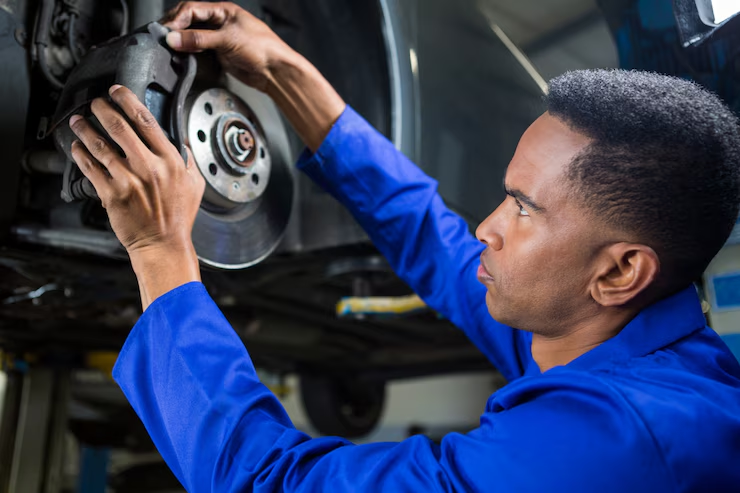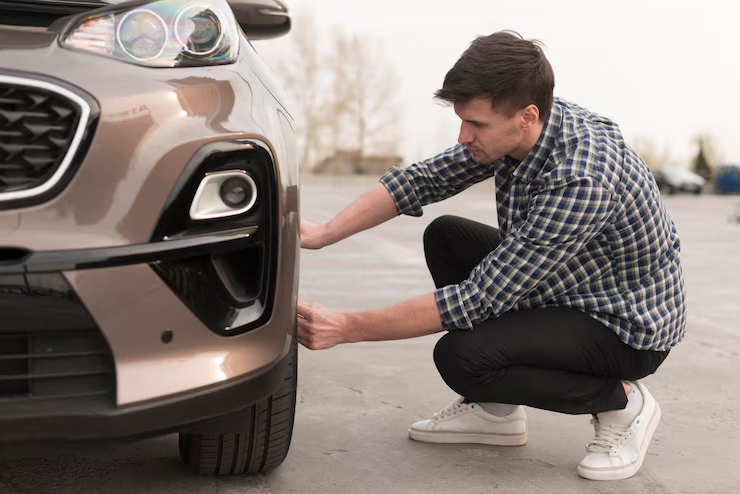Introduction
When it comes to automotive safety few brake warning signs systems are as critical as your brakes. Top 5 Signs Your Brakes Need Immediate Attention. They are the one component of your vehicle that you rely on every single time you drive whether youre cruising on the highway navigating stop and go traffic or inching forward in a parking lot. Despite their importance brake systems are often neglected until something goes drastically wrong. This negligence can be catastrophic not only for the driver but also for passengers pedestrians and other motorists.
In this extensive guide we will explore the top five signs your brakes need immediate attention. Each warning sign will be examined in detail including the mechanical causes behind the symptoms potential consequences if ignored and the best practices for repair or replacement. Well also provide a foundational understanding of how braking systems work cover routine maintenance tips and debunk common myths related to brake care.
By the end of this comprehensive article you ll not only know how to spot trouble early but also understand how to act swiftly to keep your vehicle and everyone in it safe on the road.
How Braking Systems Work
Basic Components
Understanding the basic brake warning signs components of your braking system is crucial. Most modern vehicles use disc brakes consisting of brake pads rotors (discs) calipers and hydraulic brake fluid.
Brake Pads Press against the rotor to create friction and slow the wheel.
Rotors Spin with the wheel and slow down due to friction from the pads.
Calipers Hold the brake pads and push them onto the rotors.
Brake Lines and Fluid Transmit pressure from your foot on the brake pedal to the calipers.
The Role of Brake Fluid

Brake fluid is a hydraulic fluid that allows brake maintenance pressure to be transferred efficiently. Low or contaminated fluid can cause the brake pedal to feel soft and reduce stopping power.
Squealing or Grinding Noises
Causes of Squealing
Squealing is usually the first audible sign that your brakes need attention. It may be caused by
- Worn out brake pads
- High metal content in pads
- Dust or debris between components
Most brake pads come with wear indicators a small metal tab that creates a squealing sound when the pad is worn thin.
Grinding A Serious Warning
Grinding sounds often indicate that the brake pads are completely worn out and the metal backing plate is grinding against the rotor. This can quickly lead to
- Rotor damage
- Caliper damage
- Increased repair costs
What to Do
- Inspect immediately. If you hear consistent squealing or grinding have your brakes checked without delay.
- Replace pads promptly to prevent rotor damage.
Vibration or Pulsation When Braking
Causes of Vibration
Brake pulsation is usually felt through the steering wheel or brake pedal and can be caused by
- Warped rotors due to overheating
- Uneven rotor surfaces
- Improper wheel alignment
Why Its Dangerous
Vibrating brakes reduce your control over the vehicle especially in emergency stops. Ignoring this can lead to
- Longer stopping distances
- Loss of vehicle control
- Premature tire wear
What to Do
- Rotor resurfacing may help if warping is minimal.
- Rotor replacement is necessary for more serious cases.
Soft or Spongy Brake Pedal
Causes of Soft Pedals
A brake pedal that feels soft or sinks to the floor when pressed indicates serious issues like
- Air in brake lines
- Brake fluid leaks
- Master cylinder failure
Signs of a Leak
Check under the car for fluid puddles especially near the wheels or brake lines. Brake fluid is typically clear to yellowish and slippery.
What to Do
- Do not drive if your pedal sinks to the floor.
- Top up brake fluid only as a temporary fix.
- Have a professional bleed the brakes and inspect for leaks immediately.
Car Pulls to One Side When Braking
Possible Causes
If your vehicle veers to one side while braking the likely culprits are:
- Stuck brake caliper
- Uneven brake pad wear
- Contaminated brake fluid
- Uneven tire pressure or alignment issues
Risks Involved
- Poor handling in emergencies
- Increased stopping distance
- Unbalanced tire wear
What to Do
- Get a brake inspection and wheel alignment check.
- Replace damaged calipers or pads if needed.
Brake Warning Lights on Dashboard
Understanding Warning Lights

Modern vehicles have advanced diagnostic systems. If you see a brake light or ABS light its time to act. These can be triggered by
- Low brake fluid
- Worn brake pads
- Faulty ABS sensor
- Electrical issues in the braking system
Ignoring the Light is Dangerous
Many drivers delay service thinking its just a sensor glitch. However these alerts are often tied to real problems.
What to Do
- Check brake fluid levels
- Scan for error codes at an auto shop
- Schedule immediate service
Other Secondary Signs to Watch For
- Burning smell after braking
- Brake pedal vibration under light pressure
- Brake fade after repeated use
- Clicking or popping noises
Common Causes of Brake System Failures
- Lack of regular maintenance
- Using poor quality pads or rotors
- Skipping brake fluid flushes
- Driving with worn-out components
Inspect Your Brakes at Home
Visual check of brake pads
Listen for unusual noises
Feel for pedal softness
Check for warning lights
See a Professional Mechanic
- When you hear persistent noises
- When your car pulls or shakes
- When you see warning lights or fluid leaks
Cost of Brake Repairs and Replacements
- Brake pad replacement $100 $300
- Rotor resurfacing $100 $200
- Rotor replacement $200 $400
- Caliper replacement $300 $800
- Complete brake job $500 $1000+
Tips to Extend Brake Life
- Avoid aggressive braking
- Maintain proper tire inflation
- Get regular brake inspections
- Use high quality brake components
Myths About Brake Maintenance
- If it isnt squeaking, its fine False
- All brake pads are the same False
- Brake fluid never needs changing False
Importance of Quality Brake Components
Cheap parts can wear quickly and compromise safety. Always opt for OEM or high quality aftermarket brands.
Often Overlooked Lifeline
Flush and replace every 2 years or 30000 miles. Contaminated brake fluid reduces braking performance and damages internal parts.
Brake Care in Different Driving Conditions
- City driving frequent braking faster wear
- Highway driving less stress on brakes
- Mountain driving heavy load braking higher heat
Modern Technology in Braking Systems
- ABS (Anti lock Braking System)
- EBD (Electronic Brakeforce Distribution)
- Brake Assist Systems
These improve safety but also introduce complexity. Professional diagnostics are essential.
Brakes Affect Fuel Efficiency
Worn or dragging brakes increase resistance causing your engine to work harder and consume more fuel.
Conclusion
Your vehicles brake system is not something car braking issues you can afford to ignore. Whether its a faint squeal a soft pedal or a dashboard light the signs are there to protect you if you listen. Knowing these five critical signs and acting on them can help you avoid accidents save money, and most importantly preserve your safety and that of everyone around you.
Dont wait for your brakes to fail pay attention stay proactive and make regular brake inspections a part of your vehicle maintenance routine.

